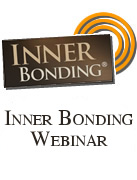Parenting: Emotional Incest
By Dr. Margaret PaulNovember 14, 2007
Emotional incest occurs when parents try to fill their inner emptiness by overly connecting with their child, and the child feels this "yucky" energy.
 Jacob, a participant in my Inner Bonding support groups, was exploring the fact that he generally didn't like to be touched. He was sharing with the group a situation that used to happen with his mother.
Jacob, a participant in my Inner Bonding support groups, was exploring the fact that he generally didn't like to be touched. He was sharing with the group a situation that used to happen with his mother.
"She used to sit me on the couch with her and grab my arms and look intently into my eyes, telling me how much she loved me and how important to her I was. I don't know exactly how to describe what I felt when she did that."
"Was it a yucky feeling?" asked Sarah, another participant.
"Yes, that's exactly the word! Yucky! So yucky! Why did it feel so yucky?"
"Because," Sarah said, "It was emotional incest. I know all about this yucky feeling. My father did the same thing with me."
The Underlying Cause of Emotional Incest
Emotional incest occurs when a parent energetically uses a child to fill an inner emptiness that the parent is not taking responsibility for filling. When a parent emotionally abandons himself or herself, that parent might latch on to a child to fill the black hole that occurs from self-abandonment. While it's not as traumatic as sexual incest, it occurs for the same reasons - a wounded parent using a child addictively to get love and avoid pain.
"Oh no!" said Phillip, another participant in the support group. "I think I might be doing that to my 15 year old daughter. No wonder she's been locking her bedroom door."
"What have you been doing Phillip?" I asked.
"Lots of times when I'm feeling badly or when Leitha (his wife) and I are having problems, I go into her room before she goes to sleep and tell her how upset I am. I complain to her about things that are going on in my life. I thought I was being a good dad - you know, spending time with her. But lately she has been asking me not to come into her room. Since I started this group, I've been realizing how much I am not taking care of my own feelings. When I feel bad, I often blame Leitha or complain to my daughter."
"Phillip, how wonderful that you are realizing this! How terrific that you are open to learning about this! What a huge difference it is going to make to your daughter for you to start to take responsibility for your own feelings."
"You know," said Phillip, "I'm excited about this. My daughter has been having some problems lately and I think this is why. I really do want to be a loving father, and I can see that I haven't understood that I have to be loving to myself before I can really love her in the way she needs to be loved. This is going to make a big difference in my relationship with Leitha too."
"Sarah and Phillip," said Jacob, "I am so grateful to both of you for putting a name to what I experienced as a child. It is really a relief to know that there was a good reason for the yucky feeling, and for not liking to be touched. I think that I have associated most touch with that yucky feeling of being pulled at to fill up my mother. I feel like knowing this, maybe I can start to give normal hugs to the people who are important to me."
A parent with a gaping inner hole that comes from inner abandonment cannot just stop the emotional incest. Certainly you can stop the overt actions, but to stop the energetic pull, you need to be doing your own Inner Bonding work so that you learn to fill your own inner emptiness.
Join Dr. Margaret Paul for her 30-Day at-home Course: "Love Yourself: An Inner Bonding Experience to Heal Anxiety, Depression, Shame, Addictions and Relationships."
 Send this article to a friend
Send this article to a friend  Print this article
Print this article  Bookmarked 5 time(s)
Bookmarked 5 time(s)
| Related Articles |
|---|
| Children, Entitlement, and God |
| Caretaking Parents, Entitled Kids |
| Are You Letting Your Children Manipulate You? |
Comments
| Author | Comment | Date |
|---|---|---|
| Join the Inner Bonding Community to add your comment to articles and see the comments of others... | ||

Daily Inspiration
In every single subtle color that forms the mosaic in our garden, is a soft, nourishment for the soul - a caress of the Divine.
By Dr. Erika Chopich

 Share with Del.icio.us
Share with Del.icio.us Share with Digg
Share with Digg






